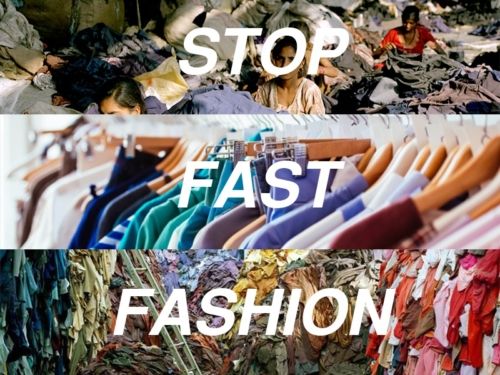A Shift in Style: Exploring Non-Fast Fashion Brands in India
Related Articles: A Shift in Style: Exploring Non-Fast Fashion Brands in India
Introduction
With enthusiasm, let’s navigate through the intriguing topic related to A Shift in Style: Exploring Non-Fast Fashion Brands in India. Let’s weave interesting information and offer fresh perspectives to the readers.
Table of Content
A Shift in Style: Exploring Non-Fast Fashion Brands in India

The global fashion industry, driven by insatiable consumer demand, has long been synonymous with rapid trends and disposable clothing. This "fast fashion" model, however, has come under increasing scrutiny for its environmental and social consequences. The relentless cycle of production, consumption, and disposal creates a massive waste problem, depletes resources, and often exploits workers in developing countries.
In India, a country with a rich textile heritage and a growing awareness of sustainability, a new wave of non-fast fashion brands is emerging. These brands prioritize ethical sourcing, sustainable practices, and timeless design, offering consumers a conscious alternative to the relentless churn of fast fashion.
Understanding the Shift Away from Fast Fashion
The rise of non-fast fashion brands in India is driven by a confluence of factors:
- Growing Environmental Awareness: Consumers are becoming increasingly aware of the environmental impact of the fashion industry. The production of synthetic fabrics, the use of harmful dyes, and the enormous amount of textile waste generated by fast fashion are all contributing to pollution and climate change.
- Social Responsibility: Ethical concerns regarding labor practices in the fast fashion industry are also gaining traction. Concerns about low wages, unsafe working conditions, and exploitation of workers are prompting consumers to seek brands that prioritize fair labor practices.
- Desire for Quality and Durability: Fast fashion often sacrifices quality for speed and affordability, leading to garments that quickly wear out and end up in landfills. Consumers are seeking durable and well-made clothing that will last longer, reducing the need for frequent replacements.
- Embracing Individuality and Sustainability: The rise of minimalism and conscious consumerism is encouraging people to invest in fewer, high-quality pieces that reflect their personal style and values.
Key Characteristics of Non-Fast Fashion Brands in India
Non-fast fashion brands in India are characterized by several key features:
- Ethical Sourcing: They prioritize sourcing materials from ethical and sustainable sources, often using natural fibers like cotton, silk, and wool. They may also work with local artisans and cooperatives to support fair wages and safe working conditions.
- Sustainable Production: These brands employ environmentally friendly production practices, minimizing their carbon footprint and reducing waste. They may use recycled materials, dye their fabrics with natural dyes, and adopt water-efficient manufacturing processes.
- Timeless Designs: Non-fast fashion brands focus on creating classic and timeless designs that are meant to last. They avoid fleeting trends, emphasizing quality over quantity.
- Transparency and Traceability: These brands are transparent about their production processes, sourcing, and ethical practices. They often provide detailed information about the origins of their materials and the conditions under which their garments are made.
- Community Focus: Many non-fast fashion brands in India are built on a foundation of community engagement. They may collaborate with local artisans, support rural communities, or work with NGOs to promote sustainable practices.
Examples of Non-Fast Fashion Brands in India
A diverse range of brands are leading the charge towards sustainable fashion in India. Here are a few notable examples:
- Bare Necessities: Founded in 2003, Bare Necessities is a brand known for its ethically sourced and sustainably produced clothing. They use organic cotton, recycled materials, and natural dyes to create timeless and comfortable pieces.
- Doodlage: This brand is known for its unique and innovative designs, using recycled materials and upcycled fabrics to create sustainable fashion. They promote circularity and responsible consumption through their collections.
- Good Earth: A leading lifestyle brand, Good Earth offers a wide range of clothing, homeware, and accessories made with natural materials and traditional Indian craftsmanship. They are committed to preserving traditional textile techniques and supporting local artisans.
- The Loom: This brand specializes in handwoven textiles, using natural fibers and traditional weaving techniques. They collaborate with weavers from different regions of India, preserving their heritage and promoting sustainable livelihoods.
- Zariin: This brand focuses on reviving traditional Indian jewelry-making techniques. They use ethically sourced materials and work with skilled artisans to create exquisite and sustainable jewelry pieces.
FAQs about Non-Fast Fashion Brands in India
1. What are the benefits of buying from non-fast fashion brands in India?
Non-fast fashion brands offer several benefits to consumers:
- Reduced environmental impact: They minimize their carbon footprint and waste generation through sustainable practices.
- Improved social responsibility: They prioritize fair labor practices and support ethical sourcing.
- Enhanced quality and durability: Their garments are built to last, reducing the need for frequent replacements.
- Unique and timeless designs: They offer classic and stylish pieces that are meant to be cherished for years.
- Supporting local artisans and communities: They contribute to the preservation of traditional crafts and promote sustainable livelihoods.
2. How can I identify a non-fast fashion brand in India?
Look for brands that:
- Emphasize ethical sourcing and sustainable production.
- Use natural fibers and recycled materials.
- Promote transparency and traceability in their supply chain.
- Highlight their commitment to fair labor practices.
- Focus on timeless designs and quality craftsmanship.
- Engage with local communities and artisans.
3. Are non-fast fashion brands more expensive than fast fashion brands?
While non-fast fashion brands may have higher price points than fast fashion brands, they offer value for money through:
- Higher quality materials and construction.
- Longer lifespan of garments.
- Reduced need for frequent replacements.
- Ethical and sustainable practices that contribute to a better future.
4. Where can I find non-fast fashion brands in India?
Non-fast fashion brands in India are becoming increasingly accessible through:
- Online platforms: Websites like Etsy, The Loom, and Good Earth offer a wide selection of sustainable brands.
- Brick-and-mortar stores: Many non-fast fashion brands have their own stores in major cities.
- Pop-up events and markets: Look for sustainable fashion events and markets in your city.
Tips for Choosing Non-Fast Fashion Brands in India
- Research brands thoroughly: Explore their websites, social media pages, and press coverage to understand their values, practices, and commitment to sustainability.
- Read reviews and testimonials: See what other customers have to say about the brand’s quality, ethics, and customer service.
- Consider the brand’s impact: Look for brands that are transparent about their environmental and social impact.
- Invest in quality over quantity: Choose fewer, well-made pieces that you will cherish for years.
- Support local artisans and designers: Look for brands that are committed to preserving traditional crafts and supporting local communities.
Conclusion: A Sustainable Future for Fashion in India
The emergence of non-fast fashion brands in India signifies a shift in consumer preferences towards ethical and sustainable fashion. These brands are not only offering stylish and durable clothing but also contributing to a more responsible and equitable fashion industry. By embracing these brands, consumers can contribute to a future where fashion is not only about fleeting trends but also about ethical sourcing, sustainable practices, and timeless style. The journey towards a more sustainable fashion landscape in India is ongoing, but the growing popularity of non-fast fashion brands is a promising sign of a future where style and sustainability go hand in hand.








Closure
Thus, we hope this article has provided valuable insights into A Shift in Style: Exploring Non-Fast Fashion Brands in India. We appreciate your attention to our article. See you in our next article!